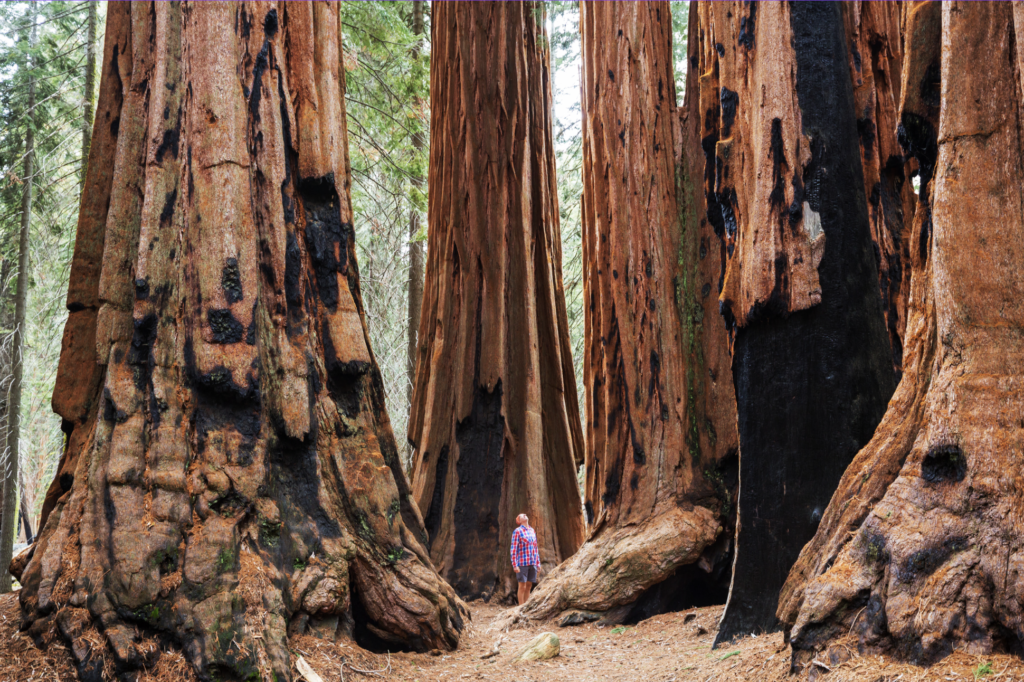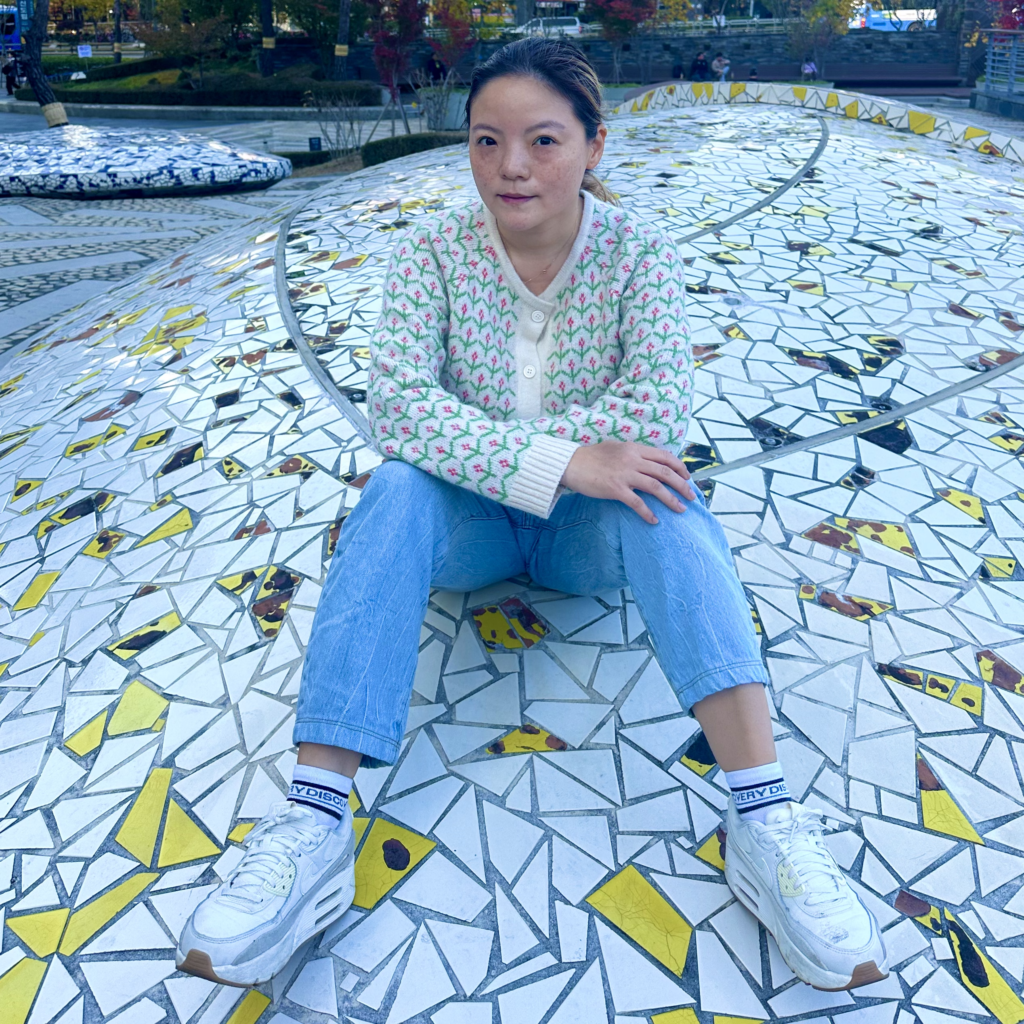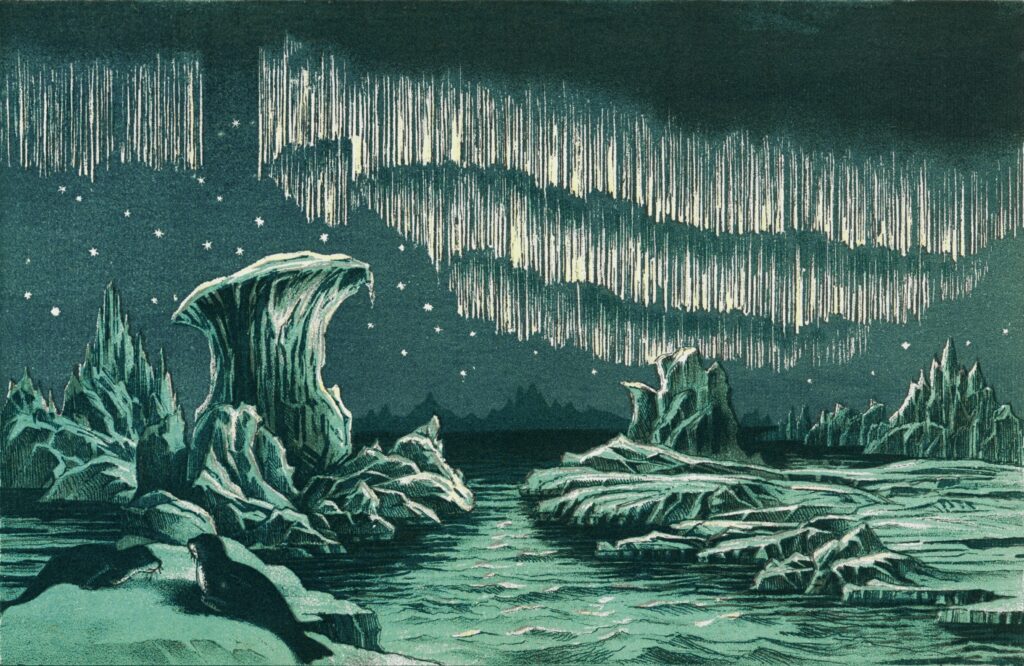
Simone Seol
Here for humans who want to human more humanely.
Categories
Business / Cold Pitching / Copywriting / Decolonization / Inspiration and Encouragement / Mental Health / Money / Personal Stuff / Philosophical-ish Musings / Sales / Social Justice
Get emails from Simone:
Are you just adding to the noise?

I just did an extensive Q&A series on Instagram stories.
On all the topics.
(It is saved as a “stories highlight” on my profile if you want to look. It will be on there for a while, though it might be gone if you’re reading this post far enough in the future.)
Responding to something I said there, a friend asked, “how do I know if my program isn’t just adding to the noise, putting more of ‘what everyone else is doing’ out there?”
I was, and am, so grateful for this question.
It is a courageous question, coming from someone whose spirit is healthy enough to be willing to risk discomfort.
That’s more than I could ask for from… so many.
I thought deeply about how to answer this, and want to talk about it here.
But first, non-duality.
Nothing is inherently noise, or non-noise.
The music you love so much might just be noise to someone else.
The literature you find so meaningful might just be unremarkable strings of words to someone else.
The teaching that saved your life might just sound like fluffy nonsense to someone else.
Noise isn’t an inherent property of anything, but a perception, a judgment.
That said, judgments are sometimes useful.
Judgment is discernment.
And sometimes, the lack of discernment hurts us.
Here’s what I’m willing to define as noise, right now: that which lacks substance and root.
When something is lacking in substance and root and still manages to persist in the world, it is usually because it makes up for what it lacks in other attributes.
Like: the soft manipulation of shiny packaging and sleek slogans, and the ability to appeal to the lowest common denominator through the triggering of our basest instincts.
Add on top of that the irresistible pull of the “cheap, fast, easy, and convenient”, then we have a recipe for something full of static… but no signal.
One of the reasons I’m pulling my old, enormously popular podcast off the air is my profound regret that, in hundreds of episodes teaching people how to get the word out about their thing, I’ve rarely stopped to ask them: “is your thing worth getting the word out about?”
If I were to do a do-over — which I am, now — here’s what I would ask again, and again.
Does your thing have substance?
Meaning, did you come by what you claim honestly?
Is it embodied and battle-tested?
When you take away the packaging, the buzzwords, the constructs and methodologies skimmed off 2-month-long course without the much slower, non-linear, winding and vexatious work of personal cultivation, is there a there there?
And can you answer this infuriating — and yet, ultimately the most important — question of:
“Why does your thing matter in a world where wars and genocides are still raging, a quarter of the global population is living under the poverty line, and where we are all equally facing a mass extinction event, probably less than a century away?”
Does your thing have roots?
Meaning, how deep does it go?
Are the roots deep enough to sustain you through floods, draughts and storms?
What kind of worldsense is it grounded in — if not the default of appropriative, disembodied, post-colonial capitalist emptiness?
Can it stand the test of time?
Where can you track the lineage of your thing?
Is that something you can make moral sense of — if not be proud of?
These are thorny, inconvenient, terribly difficult questions.
If you have an easy and quick time answering them, you’re probably already on the wrong track.
And it’s worth repeating: my biggest regret is that I haven’t posed these questions to the world sooner, more frequently and insistently.
It’s not that I believe everyone should sit on their hands and wait to take action on their passions until they have all the answers perfectly figured out.
I actually think that’s impossible.
But I think the questions beg to be honestly, humbly and vigorously wrestled with.
I think doing so is the work.
It is how you become a person of substance, and how you grow roots.
I don’t think anyone who is unwilling to do so can claim to be a serious person in the public arena.
I think anyone who is unwilling to do so is most likely, by default, just contributing noise.
Why I’m bringing blogging back

This year, I did something I’ve never done before.
Declare a sabbatical without an end date, knowing that the end date might be quite far away.
It started in the summer.
And one of the things I noticed in the beginning was that I was feeling a profound fatigue around short-form content.
Weary to my bone of carousels and reels, emails and podcasts, being relentlessly mined for dopamine, and the illusion of having done something useful with one’s mind just floating in a sea of quickly churned out, and equally quickly forgotten output.
So, when I logged off from the world, it wasn’t even out of some lofty principle.
I was just following what I instinctively yearned for — the way a shark can smell blood from miles away, the way pregnant women are said to crave the food that contains the nutrition that their gestating fetuses need.
I needed words cooked slowly.
Slooooowly.
Perhaps even agonizingly slowly (I once had a friend who was a novelist. The time it took to birth a novel — agonizing indeed.)
To make up for the years I spent immersed in words, images and videos that took only minutes, or hours, to make. The fast food of creativity.
So I dove into a months-long marathon of doing almost nothing but reading novels.
Through the written word, I’d traveled to the Deep South, Harlem, Vietnam, Australia, India, Iran, Brazil, Senegal. And more.
More importantly, I’d traveled to the insides of extraordinary minds. Minds that were fully awake to the world, sensate equally to its brutality and its beauty.
Poverty.
War.
Partition.
Genocide.
Slavery.
The endless re-enactment of hatred and trauma.
And, threading through the midst of it all, impossibly — courage, love, kindness, tenderness, art, humanity.
These minds grabbed the thorniest, most uncomfortable questions of humanity by the throat, and stared into its eyes and refusing to look away, courting madness and fury.
These novels did not give me answers.
They did not prescribe a “how to” for how I ought to live the next chapter of my life, nor how to respond to a catastrophic world with my sanity and conscience intact — both of which I was subconsciously looking for.
But what they did, I feel, was restore my humanity.
They connected me back to the person I am, and always have been, outside of the professional roles I play.
Simone who looks. and keeps looking.
Simone who thinks and asks questions.
Simone who does not tire of searching.
That Simone is the most authentic Simone there is, and any identity of mine that is even a little bit more stable, poised, and reassuring than that is a lie.
These books also punctured giant gaping holes in the comfort of my former intellectual and ethical indolence. I found myself interrogating:
Why was I so content to communicate to my people through tiny Instagram squares and minutes-long videos?
Why was I so content to consume the same from others, and call it “learning” or “connection”?
What happened that I had become so comfortable conflating learning with entertainment, conversation with sound bites of conversation, and the sacred materiality of human togetherness with doing a bunch of clicking and swiping?
Had my thinking become so at ease with the conformity and shallowness that commerciality dictates, that I felt little inner tension with doing just that for years and years?
“If you’re ever going to go back to work, do it different,” I heard from within.
I need space where my thoughts can really stretch out without having to be cut up into squares.
I need space where my friends can read, and we can talk to each other without the interruption of constantly having to scroll left, and blinking notifications left and right.
So here we are.
An old-timey, 2006-style blog.
A blog is not the answer.
But it is a place where we can ask a hell of a lot of good questions.
Why I’m leaving the world of coaching

For nearly 15 years, I’ve called myself a coach.
I have trained, taught, and yes, coached coaches.
For the longest time, I had the purest love for it.
And I am leaving this world behind.
I wanted to talk about why.
Let’s zoom out a little bit.
And take a look at historical context.
The whole field, and construct, of coaching couldn’t exist without psychology and psychotherapy having come first.
Coaching, like psychotherapy, is a complicated field.
It’s complicated because, in the Western world, these are often the only options someone has to get help when they’re in pain.
This is not a small thing. Because there is a lot of pain in the Western world.
And they couldn’t have survived this far if they didn’t sometimes work, and work vitally and profoundly.
I have said this before, and I am happy to repeat this: I credit people who call themselves coaches with saving my life. They really did. And I know I am far from alone.
Many therapists and coaches do literally life-saving work. (And many others don’t do much, and many others yet do quite the opposite.)
The fields of both therapy and coaching are sometimes self-selected into by people who are selfless, compassionate, and profoundly moved by the suffering of other humans. Other times, not so much.
Sometimes, the practitioners of therapy or coaching are incredibly skilled at their craft. Other times, not so much.
For many who are genuinely skilled, their dedication to it comes way before their desire for money or status, if they care for those things at all. I know both coaches and therapists who basically live like ascetics, and are content with their lives just helping people.
To make black & white generalization about either of these fields is difficult.
These fields do a lot of good. And they do some not-good.
Because I experienced firsthand so much of good in it, and met some of the most generous and kind-hearted people in it (including so many of my teachers, colleagues and clients), I carried the torch for it and defended it for as long as I did.
But over the past few years, it has become increasingly difficult to do so, as I learned more history, reflected on the realities of the world, and delved deeper into my own spiritual roots.
Doing even the smallest amount of research into the roots of Western psychiatry and psychotherapy is to be horrified by its racism, colonialism, and violence.
Perhaps even more horrifying to contemplate than the violence that is visible for all to see is the violence of what has been cleanly erased, exterminated, wiped off the map, to make for the advancement of these Western institutions.
What has been erased can’t make sounds.
(The sounds of my great-grandmother throwing a knife at the door to cast out wayward spirits. The sounds of grandmother rattling her shaman’s bells.)
It is from the “clean slate” of this erasure that the field of coaching is born, breathless with the promise of 20th century, Cold War-era, American capitalism:
YOU can get rich. YOU can be hot. YOU can be happy. YOU can hack your way out of aging, unhappiness, and loneliness.
All you need to do is to improve yourself. Let us show you how! Here’s where to make the deposit.
Both coaching and therapy were created, popularized, and represented — still — at the highest levels by white people (mostly men), in post-colonial, post-industrial times, growing in conjunction with capitalism, with the centers of intellectual influence coinciding with global centers of economic and military power (e.g.US, Western Europe.)
In the big scheme of things, I’m small fish, swimming in small waters. And from my view, I have come to see how this shows up in every crevice of what I could observe.
(1) The fact that there is almost no coaching “practice” that hasn’t been appropriated, multiple times over, from an indigenous tradition.
Borrowing and adaption between cultures is entirely normal and healthy.
An utter lack of acknowledgment or crediting because of the enormous power differential between cultures, no sense of right relationship, and no appropriate sense of how to be in relationship with lineage… is another.
Take, for example, the Eastern practice of “mindfulness” — the idea of observing your own thoughts from a neutral place. This was never, ever meant to be in service of individual happiness, productivity, and wealth. And in Eastern traditions, it was always, always grounded in the necessity of moral action and serving the needs of the community.
I could give a hundred other examples.
(2) The way that default coaching “goals” and aspirations fit so snugly with capitalist values that are destroying the Earth
The quickest and easiest possible accumulation of individual wealth, growth at all cost, the celebration of consumerism, individual happiness (an oxymoron), what I call the “Amazon Next Day Delivery” approach to inner peace and contentment…
… a compartmentalized vision of “wellness”, productivity, an ideal of physical beauty that Hitler would salivate over (Aryan-blonde, blue-eyed, slim, youthful and fertile)…
(3) And, as a corollary, a pathological avoidance of things that are decidedly NOT capitalism-friendly
Slowness, aging, pain, illness, decay, illness, loss, darkness, silence, liminality — all things that were honored, and considered to contain inherent value and wisdom by Indigenous traditions.
(4) The fact that the vast majority of coaching businesses do not even make passing references to systemic and collective issues, and, in fact, go out of their way to avoid them.
Because it’s “unprofessional.” “Irrelevant.” “Low vibrations.” “Divisive.”
And, ultimately, “bad for business.”
(5) The dire lack of eldership — despite the overabundance of self-professed “experts.”
All of the above contribute to an environment in which enormous sum of money are always being cycled through while the collective is, somehow, becoming more and more impoverished both materially and spiritually.
There was a moment when I clearly saw that the work of “redeeming” or “changing the system from the inside” was an illusion.
That’s when I knew: I was out.
… human interdependence and cooperation, rather than individualism and commodification must be at the heart of the psychology of liberation, which should be about empowering people to change institutions and radically transform social structures, rather than adjusting and submitting to the status quo while making a profit. — Hamza Hamouchene
A friend asked me what I would call myself, if I am no longer calling myself a coach of any kind.
My answer was simple; HUMAN.
Because, that, I am.
You may call me teacher, as I intend to go on teaching. Oh, there is so much to teach.
If you still want to call me a coach, that is okay, too. I am not offended. It is a name I was proud to go by for many years, and I am okay to still be called it. It is part of my makeup and lineage.
If you want to know what self-cultivation and healing looks like outside of the broken cultures and institutions of the Western world, read books by people like Malidona Patrice Somé, Jiddu Krishnamurti, Thich Nhat Hanh, Robin Wall Kimmerer, Tyson Yunkaporta, Cole Arthur Riley, Tricia Hersey, Tamela J. Gordon.
The list could be miles and miles long. These are some names I could throw off the top of my head, just the tip of the tip of the tip of the iceberg.
There’s no moral purity here.
I collude with white supremacy and capitalism by virtue of being alive in 2024, despite ongoing experiments to more responsibly steward what I can.
We’re all wrestling with complicated history and constructs and doing our best.
There are coaches of color doing groundbreaking work, and white coaches who are actually radical activists in disguise, doing some of the most courageous work I know. (I bow down to you.)
Coach, Schmoach, whatever… these are just words.
We will be known by the seeds we sow in the world, not what it says on our business card (or, nowadays, Instagram bio, I guess).
Whatever you call yourself, I don’t care.
If you take the time to hang out with me, read my words, and find my thinking useful, I am grateful to you. And you are warmly welcome in my world, always.

I’m Simone Seol
I am here for humans who want to human more humanely.
Business / Cold Pitching / Copywriting / Decolonization / Inspiration and Encouragement / Mental Health / Money / Personal Stuff / Philosophical-ish Musings / Sales / Social Justice